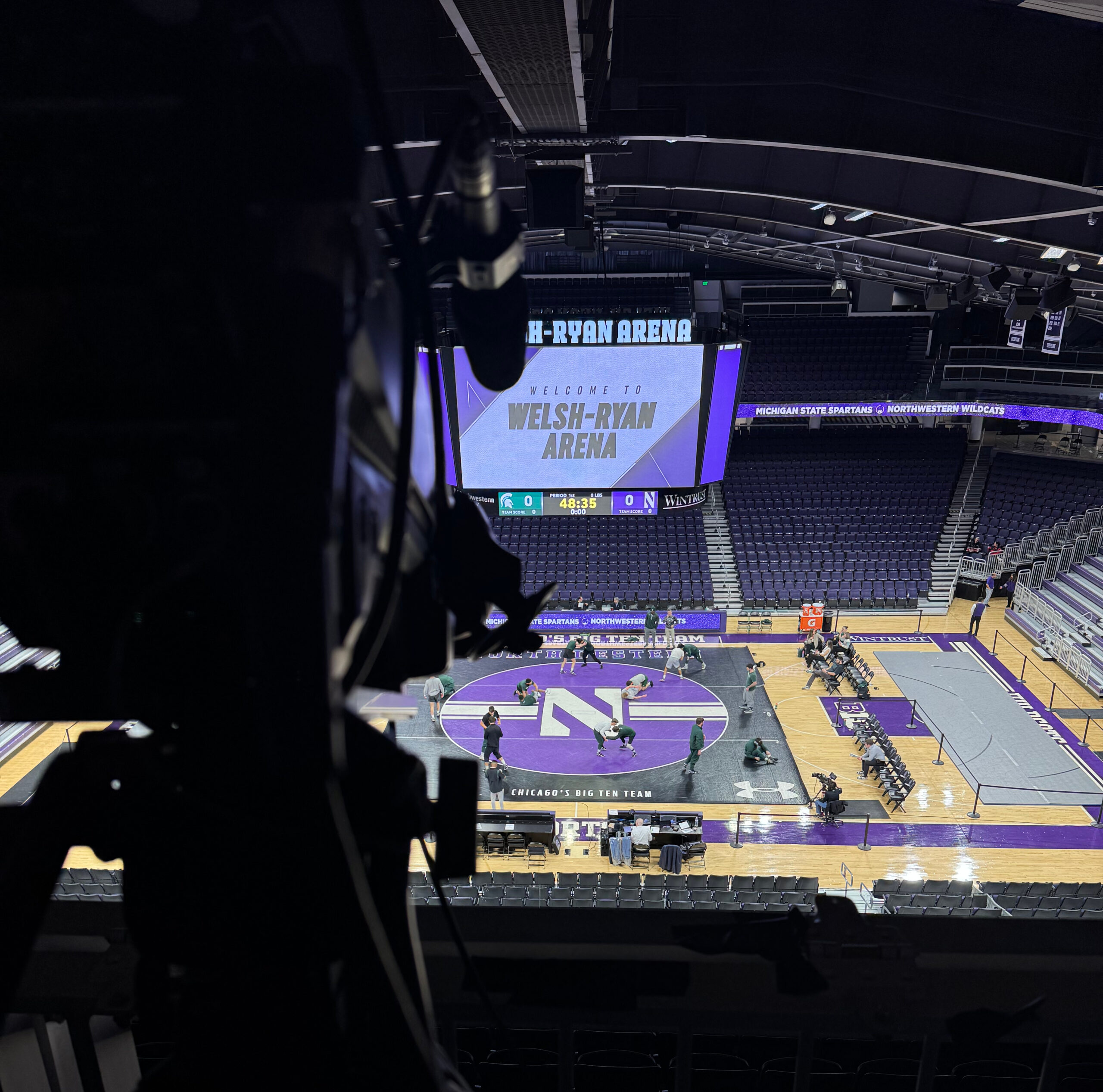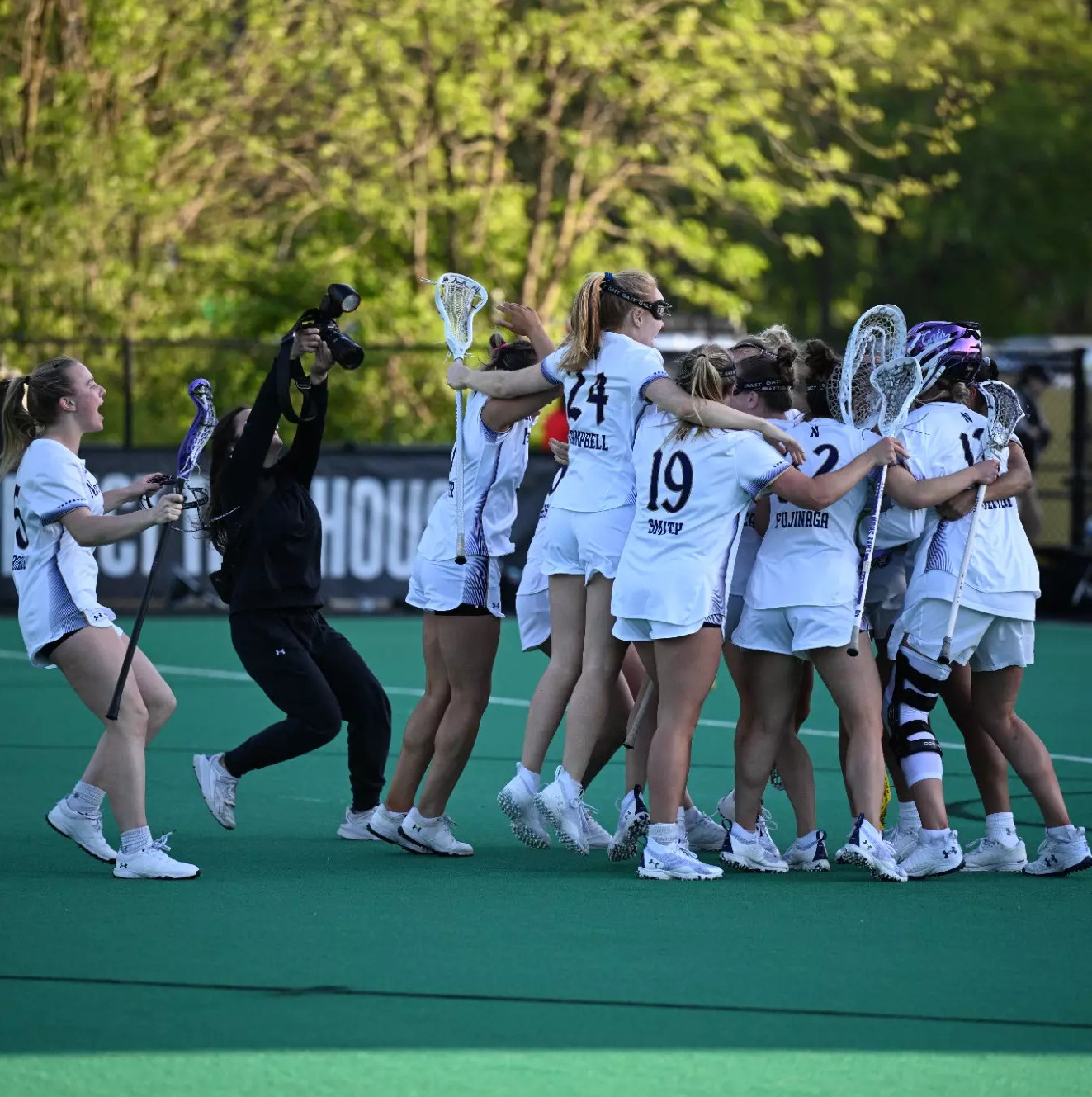Before he submitted his college applications, McCormick third-year and current club co-president Charlie Kalousek knew he wanted to join Northwestern’s Theme Park Engineering and Design Group (TPED).
“My (Northwestern) tour guide was the founder of TPED, and he was telling us all about this cool club for roller coasters,” Kalousek says. “I ended up writing (about) it in my ‘Why Northwestern’ essay. From day one, I knew I wanted to be in the club.”
TPED – Northwestern’s only theme park-based club – creates a community for students with an appreciation for amusement parks or a budding interest in working in the respective industry. Meeting once a week on Wednesday nights in Annenberg G32, TPED introduces students to the professional world of designing and engineering an entire theme park.
For many students, joining TPED fulfills a life-long love for roller coasters.
“I always loved going to theme parks and riding roller coasters,” TPED co-president and McCormick fourth-year Ryan Kessler says. “As I grew older, in school I always leaned more towards the STEM subjects – math, science and engineering – so I figured that coming into college, it would be the perfect combination of my academic interest (and) what I was interested in in my personal life.”
Like Kalousek, Kessler was eager to join TPED during his first year at Northwestern. Even inexperienced students get to dive head-first into TPED’s projects. In the first meeting of each quarter, the club explores the heart of theme park design: creative brainstorming. Members, both new and old, work side by side to create an imaginary theme park based on a random word that a computerized wheel generates. Teams let their creative juices run wild with concepts for rides, merchandise and food, according to Kessler.
The initial meeting acclimates the new members to the club and introduces them to the returning TPED members. For the rest of the quarter, the (roughly) 30 members convene to work on a variety of activities related to park design. While much of TPED’s work is rooted in engineering, the club is open to any and all majors.
“(The club) is not predicated on any sort of engineering knowledge or foundation,” Kessler says. “We definitely can teach that to people who are interested if they aren’t an engineering major. But we also really like to focus on the more creative, artistic aspect of things as well.”
TPED employs students’ artistic inclinations to execute their annual haunted house in Norris. To ring in Halloween, the club engineers sets and collaborate with scare actors to create a full-fledged fright house for the night. Kessler notes that having students with strong creative and artistic abilities is key to creating an immersive experience.
TPED also puts its creativity and design skills to the test at annual competitions. When Kessler was a first-year, he participated in the Iowa State University’s Ride Engineering Competition. For this tournament, students were tasked with designing a “flat ride.” The Northwestern team opted to design a pendulum swing, complete with a small, motorized scale model of the actual ride.
“I was one of the younger members that hadn’t had much experience– on these projects or in the classes– and I was just learning how it all works,” Kessler says. “It was really cool to see a lot of the older students be able to put this together.”
The club attended the Toronto Metropolitan Thrill Design Invitation in Orlando Florida this fall. Six students traveled to represent the club in the theme park design competition hosted at Universal Studios.
At the competition, the team spent 48 hours modeling and designing a theme park attraction. Industry professionals then thoroughly questioned the team on their design, forcing students to think on their feet and gain a first-hand look into the inner workings of the theme park industry.
“(Professionals are) basically saying, ‘How is that feasible? How would you get that number of guests on the ride? How would that experience impact guests who have disabilities?’… In the industry, they’re constantly coming up with things very quickly; they don’t have a lot of time to ideate. It gave us a great experience as to what they’re doing in the industry,” Kalousek says.
This year, Northwestern’s team was recognized for their work in the competition’s technology enhancement challenge. The students were commended for technology innovation, communication and human-centered design.
For students, these contests offer a deeply immersive experience of a career in the theme park industry. Going forward, the club hopes to create more engagement with the industry by expanding networking opportunities.
Since the club was founded in April 2020, TPED is still in its growth phase. However, several TPED fourth-years, such as McCormick fourth-year Ashley Burwell, hope to be a useful resource for future undergraduate students interested in pursuing a career in theme park engineering or design.
This past fall, Burwell spent the quarter in Florida as an industrial engineering intern for Walt Disney World.
“It’s because of these internships that (TPED exec members) are hoping we’re going to grow and (make) networks with our resources,” Burwell says.
Like many TPED members, Burwell knew she was interested in theme park engineering even before getting to Evanston. The Central Floridian was surrounded by theme parks throughout her childhood, which sparked her initial interest in engineering. But TPED is what sustained her passion for theme park creation.
While many members share this passion, a dedication to the world of roller coasters and attractions is not a requirement to becoming a part of this community.
“I think for anybody who’s in that position where they’re not sure what avenues they want to take and if they’re at all interested in theme parks … I would recommend joining the club,” Kessler says. “I’d say for most of the people who’ve come to our meetings from the beginning of a quarter, they usually end up really loving it and sticking around with it.”



